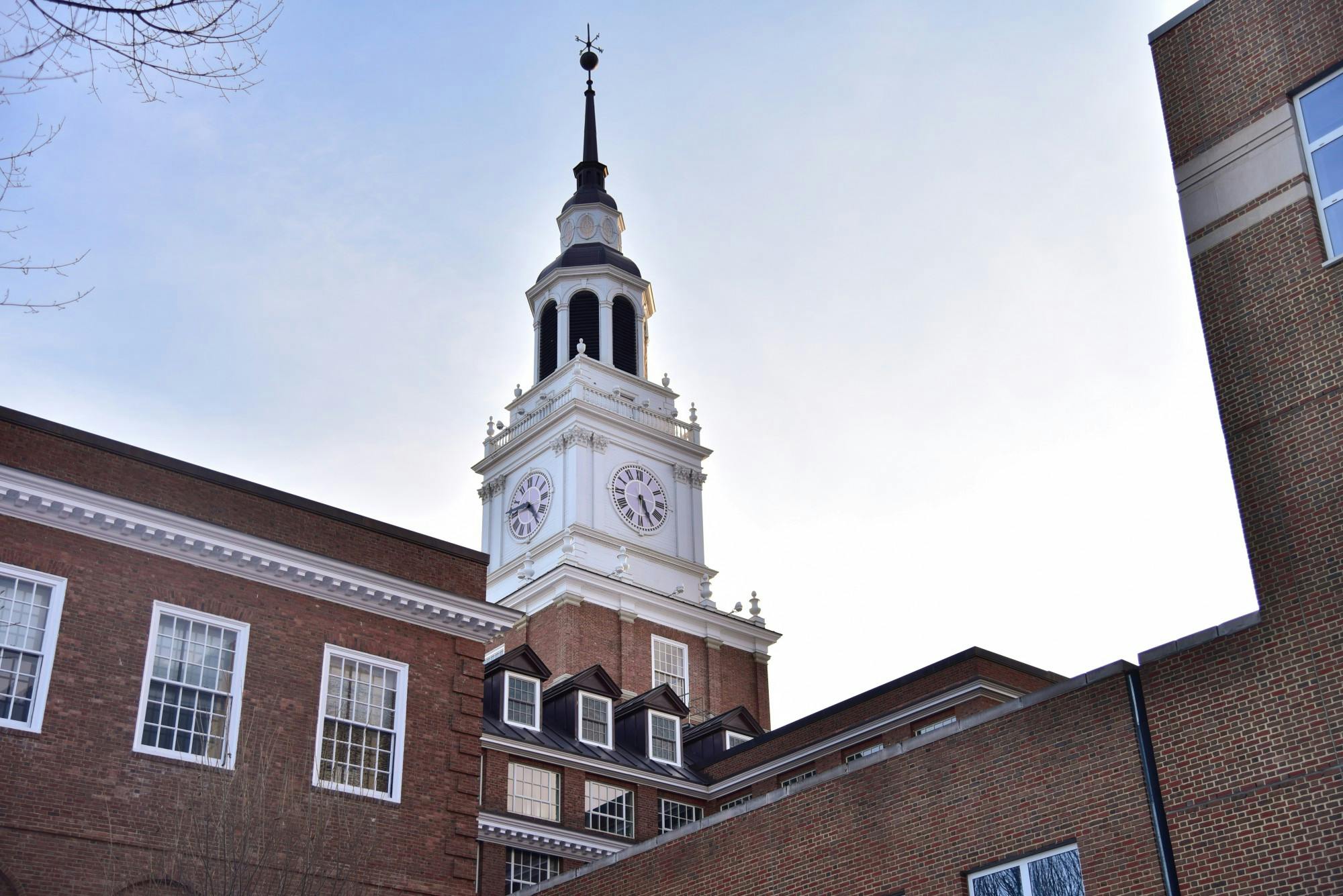Last week, faculty, staff and community members protested efforts to attack higher education and the ongoing Israel-Hamas War at a “walkout,” “speak-out” and faculty panel. Speakers at the events gave remarks on the humanitarian violations in Gaza, recent mass deportations under the Trump administration and the protection of marginalized communities in higher education.
The April 17 events were part of a national protest day organized by the Coalition for Action in Higher Education, which includes the American Association of University Professors, Faculty for Justice in Palestine Network and Higher Ed Labor United.
A CAHE press release described the National Day of Action for Higher Ed as a protest against several causes, including “attacks on gender, women and sexuality studies, Black studies, Indigenous studies, ethnic studies and Middle East studies departments and programs” in higher education and repression of campus protests, among others.
During the speak-out, one speaker read a statement from Mahmoud Khalil, a graduate student at Columbia University who was detained last month for his participation in pro-Palestinian protests. Another speaker read pro-Palestinian poetry.
English professor Jeff Sharlet, who also spoke on the faculty panel, said in an interview with The Dartmouth that he brought his class to the speak-out to hear different perspectives on the liberal arts.
However, the class eventually returned to the classroom after about 25 minutes because the “very worthy topics” shared at the speak-out were not related to the class’ discussion.
“People are free to go there and talk about how they see this issue,” Sharlet said. “If they see what’s happening on higher ed right now primarily through the lens of Palestine, I think they’re free to say that.”
“I think it’s appropriate to be bringing in all those issues, and it just didn’t work for the class discussion that I was having,” he continued.
Panelists talked about a variety of College issues. Subject librarian Daniel Abosso, who organized the Dartmouth College Library Workers Union, said he has felt a “real chill” from the College about staff unionization.
“I know that many staff that I work with and across campus want to be more bold, but they are simply afraid of losing their jobs,” Abosso said.
Women’s, gender and sexuality studies professor Mingwei Huang spoke about the importance of interdisciplinary programs for fields that do not have departments or programs at Dartmouth. For example, the WGSS program is a “de facto home” for Asian American studies, queer studies and transgender studies, Huang said.
The WGSS program is “for minoritized students and faculty and post docs,” Huang said. “We are a space for a lot of student activist organizations on this campus.”
Numerous affiliated faculty members did not respond to a request for comment or declined a request for comment.
History professor Bethany Moreton said Dartmouth’s chapter of the AAUP — which organized the event at Dartmouth — is central to bringing faculty members together. She said it is the “closest thing” professors have to a faculty senate.
“Our AAUP is currently trying to serve as a distribution point for information and convening conversations,” she said.
Elizabeth Ray ’27 contributed to reporting.
Kelsey Wang is a reporter and editor for The Dartmouth from the greater Seattle area, majoring in history and government. Outside of The D, she likes to crochet, do jigsaw puzzles and paint.
Charlotte Hampton is the editor-in-chief of The Dartmouth. She hails from New York, N.Y., and is studying government and philosophy at the College.
She can be reached at editor@thedartmouth.com or on Signal at 9176831832.




